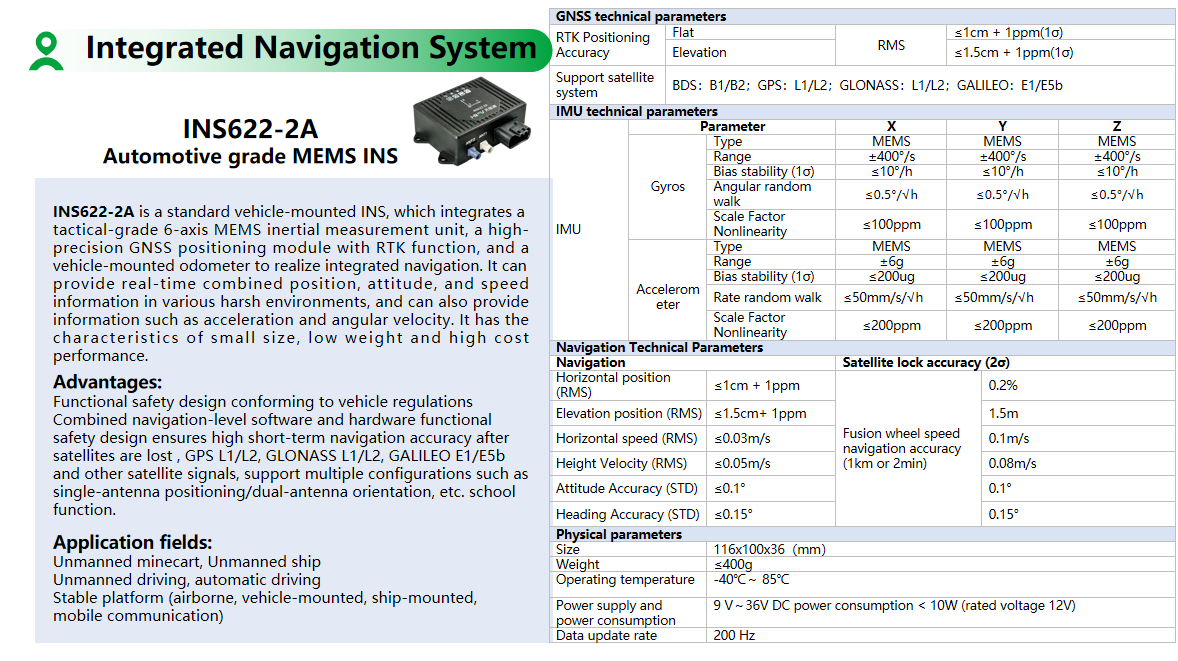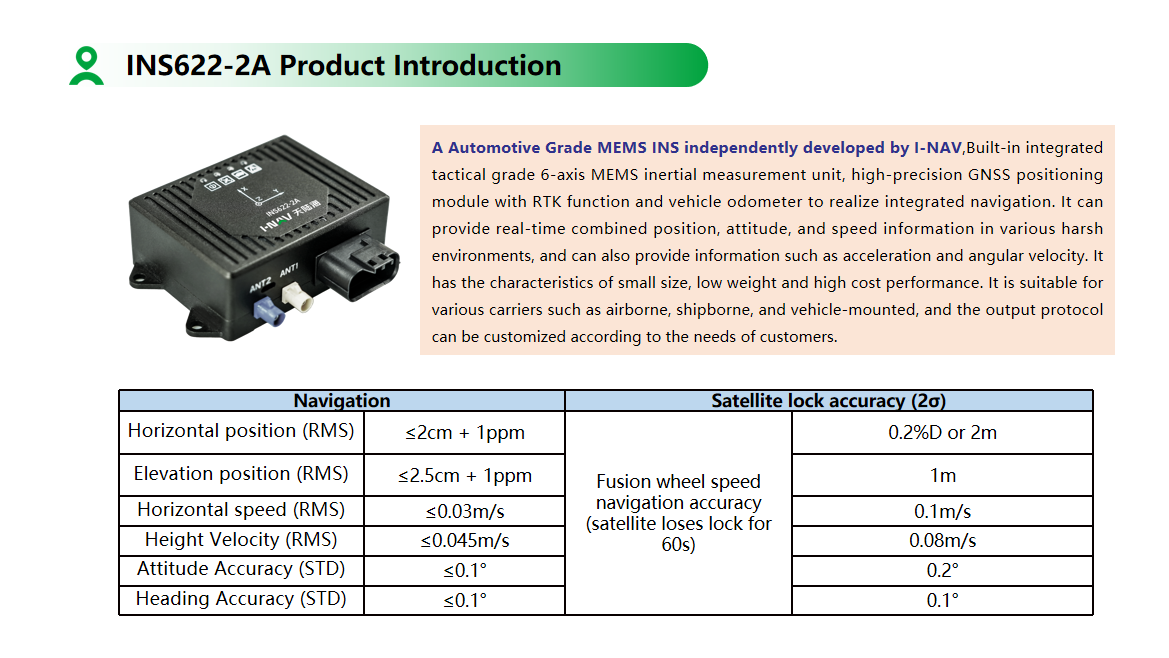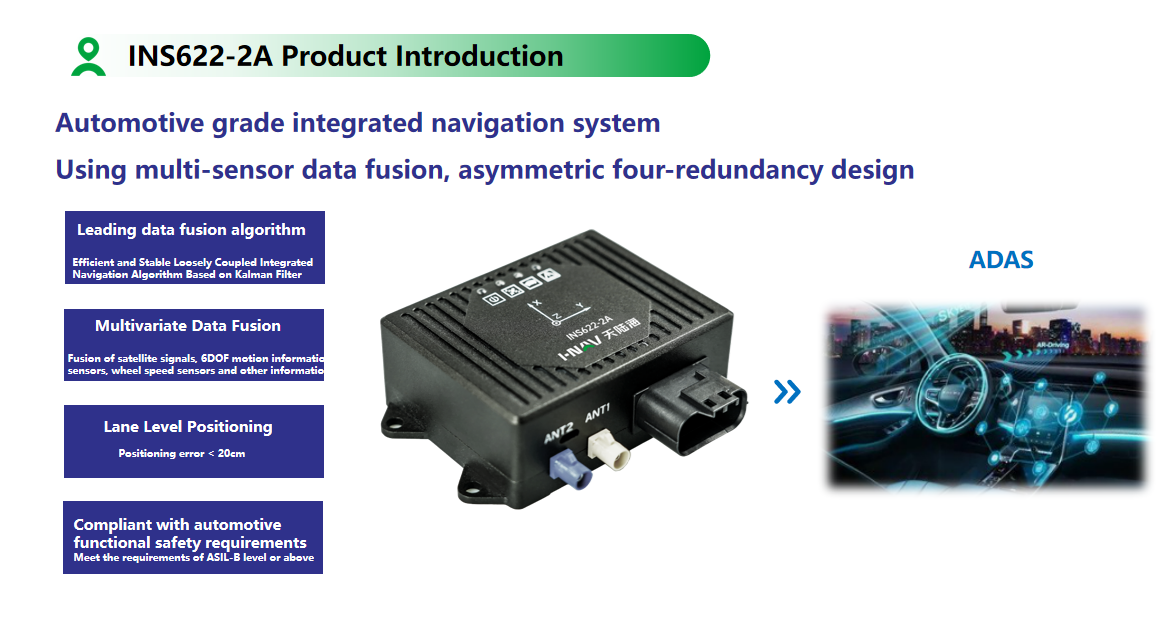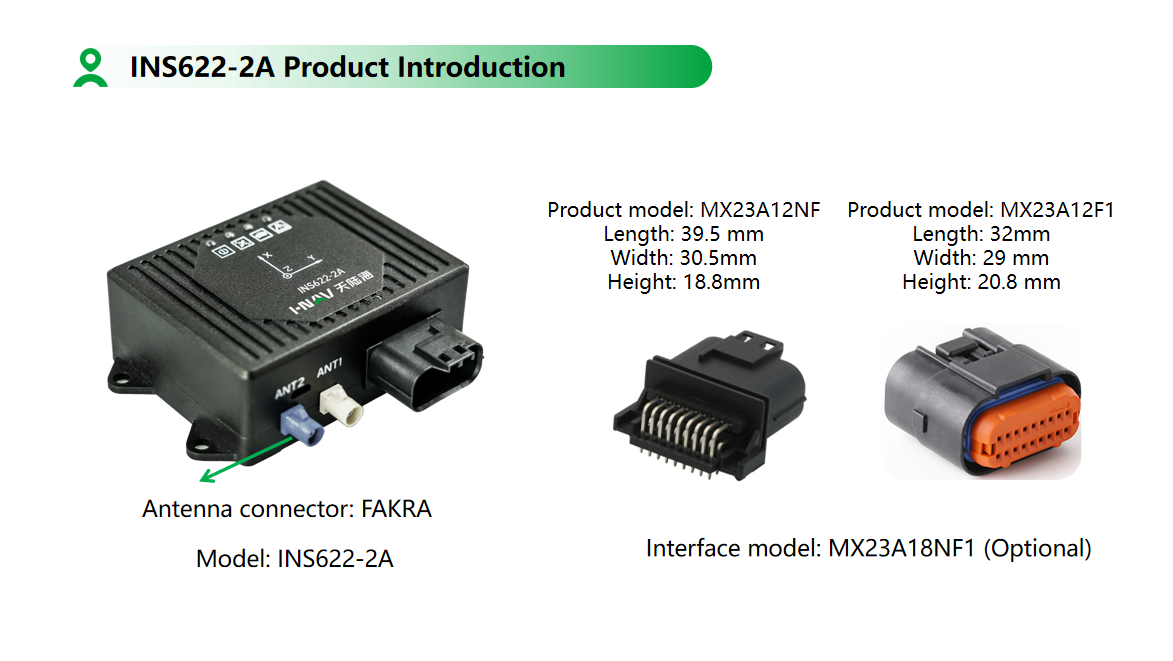


1. Low-Speed Self-Driving Inertial Navigation Applications
Inertial Navigation Systems (INS) use accelerometers and gyroscopes to track the motion and orientation of a vehicle or object. They are commonly used in applications such as aviation, marine, and land-based navigation.
Low-speed self-driving inertial navigation is a specific application of INS technology in autonomous vehicles that operate at low speeds. This type of system is commonly used in industrial and agricultural settings where vehicles are required to operate in confined spaces, such as warehouses or fields.
One key advantage of low-speed self-driving inertial navigation is that it does not rely on GPS or other external sensors. This makes it highly robust and reliable, as it can continue to operate even when GPS signals are lost or when other sensors are unavailable.
Another advantage is that it can be highly accurate, especially when combined with other sensors, such as lidar or cameras. This is because it can provide highly precise measurements of acceleration and rotation, which can be used to calculate the exact position and orientation of the vehicle in real-time.
Some examples of low-speed self-driving inertial navigation applications include:
lAutonomous forklifts: INS technology can be used to enable forklifts to navigate through warehouses and pick up and transport pallets with minimal human intervention.
lAutonomous tractors: INS technology can be used to enable tractors to navigate through fields and perform tasks such as tilling, planting, and harvesting crops.
lAutomated guided vehicles (AGVs): INS technology can be used to enable AGVs to navigate through factories and transport materials and goods between different production stages.
Overall, low-speed self-driving inertial navigation is a highly promising technology for enabling autonomous vehicles to operate in confined spaces with high accuracy and robustness.
2.Production introduction



